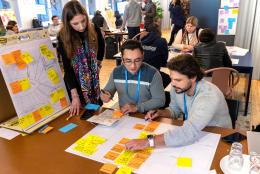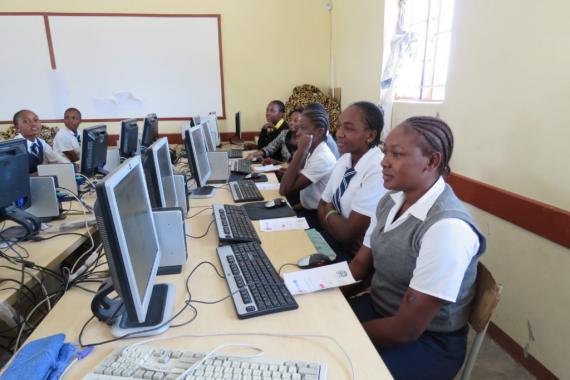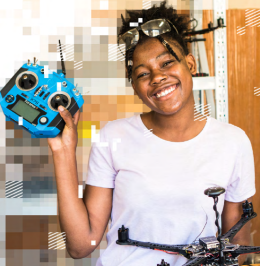Transposing the proverb onto the technology for development project, “Do Like Edu,” captures the essence of why such a tool was conceptualized, developed and implemented. Key stakeholders came together to till the soil and plant the seeds for lifelong learning by helping children love learning through the “Do Like Edu,” e/m-learning platform.
For learners from the most vulnerable communities, high repetition rates (particularly at Grades 1, 5 and 8) and soaring drop-out rates (especially in senior secondary phase) describe the education landscape in Namibia. Out of a 100 learners in rural Namibia, only 1 will have graduated from Grade 12.
To improve schooling, teaching, and learning, the Ministry for Education, Arts and Culture (MoEAC) launched the flagship programme called School Accountability and School Governance (SASG) with the motto, “Quality education is our shared responsibility.” The objective of SASG is to increase community involvement in education for improved outcomes for all phases of schooling. A key pillar of SASG is strengthening learners’ capacity to meaningfully participate in school governance.
DO LIKE EDU
Through high-level engagement in school activities under the motto “Do Like Edu” learners are encouraged to act with agency for effectively participating in school governance. Edu is an animated character who visits learners at school and encourages them to live happier and healthier lives and do better at school. Our e/m-learning platform is a digital learning arm of “Do Like Edu” and was rolled out under the same name to leverage learners’ familiarity with Edu to promote the uptake of the eL/mL platform.
By design, with a focus on equity and by leveraging mobile phone coverage, the digital e/m-learning platform promotes access to open educational resources to users in remote regions at no cost for the end user.
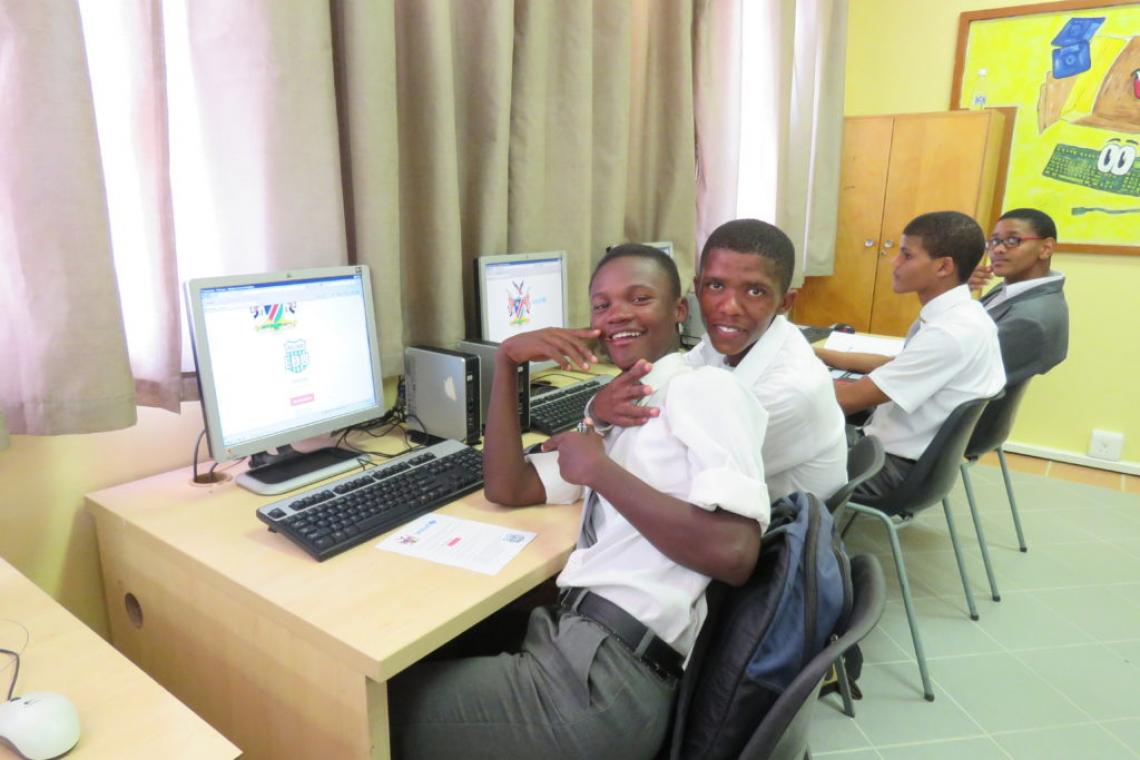
The platform capacitates learners to exercise their agency by building both academic and life skills to engender learner confidence for them to create their own school landscape. Academically, the platform supports learners to do better in English, Mathematics and Physical Science. For life skills, a psychosocial component “Talk to Edu” assists the learners with skills such as time and stress management during exams, and to make use of open educational resources.
To bring this platform to life, the Technical Working Group (TWG) helped created contextualized material and provided infrastructure support to successfully deploy the platform. The TWG also created a line of accountability and reporting to ensure the platform aligns with and is monitored under SASG activities.
BIG WINS
The platform rollout was successful in galvanizing interest amongst learners, teachers and school management. After the deployment, encouragingly, a small number of “Super Users” emerged who have completed more than 100 questions each, which shows a keen appetite for a digital learning environment that complements teaching strategies in Namibian schools.
It was also very encouraging to see how learners responded to the platform. Based on a learner survey, the reasons as to why learners continue to use Do Like Edu can be focused on 5 different competencies: improved content knowledge, ICT skills, preparation for exams, test-taking skills and engagement with subject concepts. Some responses also indicate the learners appreciating a safe space to fail and feeling encouraged to try again, for example, “It taught me when I failed a question the first time, I keep on trying and I did not fail it again.”
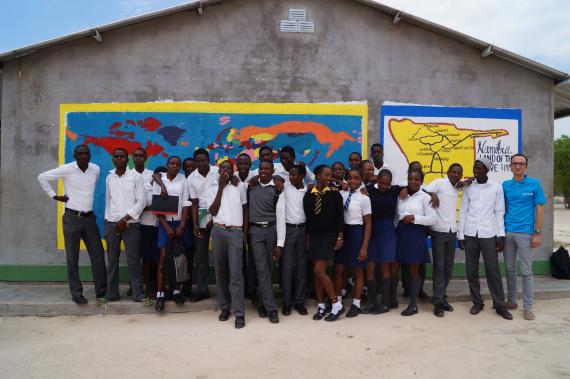
CHALLENGES AND NEXT STEPS
In terms of content, not all learners were able to understand and answer the questions on the platform. English language skills were lacking and not all learners knew basic concepts to answer complex questions posed on the platform. The questions need to be simplified, with more of a focus on bridging content for learners who have not acquired the necessary foundational knowledge. The platform can provide a means for supplementary education for learners with knowledge gaps. Many learners mentioned that they have never used “Talk to Edu”. The content can be re-designed by introducing more interactivity and multimedia.
REFLECTIONS
Finally, it was necessary to have buy-in from teachers, parents and school management, which took time and required a concerted effort. The strategy for creating buy-in needs to be multi-pronged and should include both in-person visits, as well as regular phone call and emails to ensure that the Do Like Edu eL/mL platform remains a priority for key school personnel. Additionally, workshops can also be offered to create shared meaning around the value of ICT integration in education.
For example, a workshop was held at a potential new pilot school with the staff (teachers and head of departments) that encouraged dialogue to promote understanding of ICT integration in education. As part of the workshop teachers debated about whether they should or should not, “Do Like Edu.” As indicated in the Pro and Con videos, teachers clearly delineated challenges and benefits of using the platform and more broadly, ICT in education. The debate allowed for very active engaged dialogue that helped teachers and administrators to become informed advocates about ICT in education. Overall the key finding and recommendation have been that ongoing engagement is needed with many of the stakeholders to ensure that both an enabling environment is created at a macro level and that the desired levels of activity are achieved at an in-school level.
Ultimately such a platform would not have been possible without the support from UNICEF's Innovation Fund which allowed for initiating innovation and created a platform to engage the government on T4D. It also transferred knowledge management through technical support and design criteria, skillsets essential for a country like Namibia which is a budding environment for technology for development.
Related Stories
